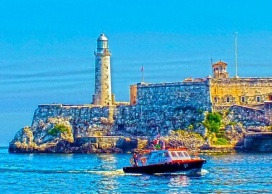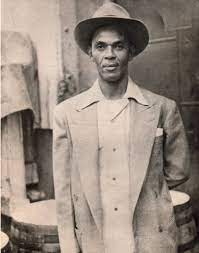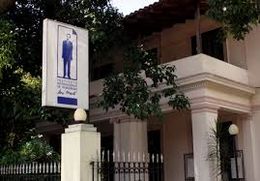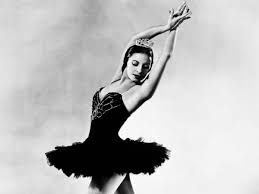
Havana ephemeris. October the 17th.
1918. Rosendo Ruiz Quevedo is born in Havana.

From a very young age he studied music at the Ernesto Alpizar Conservatory in Guanabacoa and at the Popular Music Seminar in Havana, directed by the pianist and musicologist Odilio Urfé. He was an outstanding composer of songs and boleros. His song "Hasta Mañana Vida Mía" stands out, which was the theme of a radio program at the end of the 50's in the 20th century. He was also the author of other works in the cha cha cha genre that became very popular, including Rico vacilón, Los marcianos and Los Fantasmas. He passed away in Havana on June 27, 2009.
1948. The port leader Aracelio Iglesias is assassinated in Havana.

He was attacked from behind by several thugs. He was mortally wounded, and despite his seriousness, aware that he was going to die, from his bed he sent a message to his colleagues asking the workers to go to the Ministry of Labor as planned to carry out the protest action against those who usurped the leadership of the workers' organization. In his revolutionary work during the twenties and thirties, he actively participated in multiple acts of rejection of the dictatorship of Gerardo Machado. He was part of the Strike Committee that was created in the Port of Havana. In 1938, due to his prestige, he was elected Organizing Secretary of the Union of Stevedores and Day Laborers of the Bay of Havana and later formed part of the Committee of the Confederation of Cuban Workers. His birth took place in the town of Consolación del Sur in the province of Pinar del Rio.
1962. Commander in Chief Fidel Castro inaugurates the “Victoria de Girón” Institute of Basic and Preclinical Sciences in Havana.

Fidel points out: “Everything that interests the people is the fundamental concern of the revolutionaries; revolutionaries work for that: they work for the people. I would say that it is a very sensitive issue, very sensitive, the problem of medicine, the problem of health”. This institution has the primary function of the academic and comprehensive training of undergraduate Medicine, Nursing, Stomatology and Health Technology students. In the postgraduate course, it is responsible for the training of specialists in the disciplines of Basic Sciences and Clinical Sciences.
1983. The José Martí International Institute of Journalism is founded in Havana

Belonging to the Union of Journalists of Cuba, in its work it contributes to the professional improvement of Cuban and Latin American journalists, based on academic updating programs.
The center is sponsored by the Latin American Federation of Journalists and recognized by the Cuban Ministry of Higher Education, the University of Havana and its Faculty of Communication.
More than 30,000 professionals from thirty countries have passed through its classrooms.
The center offers postgraduate courses, diplomas, workshops, seminars and meetings on the most diverse topics, with the aim of raising the standards of journalists from Cuba and Latin America.
1996. Maruja Sánchez Cabrera dies in Havana.
From the stage of her childhood she began to study music. In her professional work, she was an outstanding violinist who also actively participated in the preparation and direction of music programs for CMBF Radio Musical Nacional, specialized in the dissemination of so-called concert music.
She was the founder of the National Symphony Orchestra and the Havana Chamber Orchestra and was a member of the Nuestro Tiempo String Quartet and the Amadeo Roldán String Quartet. She was also a soloist with the Orchestra of the Great Theater of Havana.
Her birth took place in the town of San Antonio de los Baños, then province of Havana, on January 17, 1927.
2019. Alicia Alonso dies in Havana.

She was the absolute prima ballerina, choreographer and director of the National Ballet of Cuba.
She came to dance in 1934. She made her professional debut in musical comedies in 1938 and two years later she joined the New York Ballet Theater as the supreme performer of the great works of the romantic and classical repertoire. She got a big break on November 2, 1943 when she replaced Alicia Markova in Giselle, on the stage of the Metropolitan Opera House. That night she played a leading role for the first time. The public received her ecstatic and surprised. In 1948, with the motivation to promote ballet in Cuba, she returned to her homeland and founded a ballet company in Havana together with Fernando and Alberto Alonso.
In 1950, she definitively founded the Alicia Alonso Academy, an institution that was initially nurtured by the knowledge of its creators and the techniques of the Russian, Italian, English, French and Danish schools.
In 1954, the Ballet de Cuba, a name that it adopted at the request of Alicia herself, premiered in America the complete version, in four acts, of Swan Lake and in 1956 performed "Romeo and Juliet" for the first time, with choreography by Alberto Alonso.
About what dance meant in her life, Alicia Alonso came to affirm: “For me, dance is me; not that I am the dance, it is that the dance has taken over me, it is part of me, it is me. I think through dance.”
She explained that she felt fulfilled dancing and that all her works, from the simplest to the largest ballets, have pleased her.